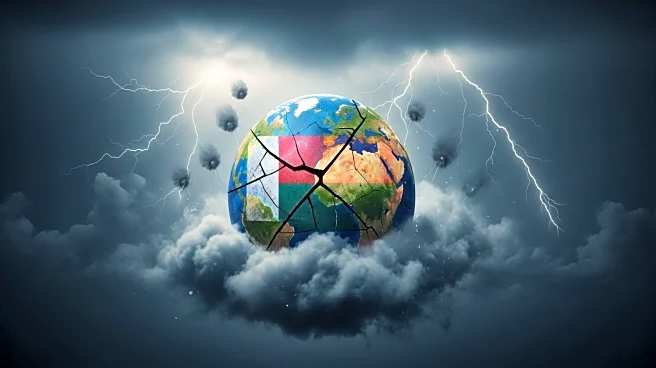What's Happening?
Madagascar is experiencing its largest wave of protests in over 15 years, driven by shortages of basic necessities and chronic power outages. The protests, initially sparked by the arrest of two city politicians, have escalated into demands for President Andry Rajoelina's resignation. Despite sacking his government, Rajoelina has failed to placate the protesters, who accuse the government of failing to guarantee basic rights and blame widespread corruption for the electricity crisis. The protests have spread across eight cities, with at least 22 people killed and over 100 injured, according to the UN. The government disputes these figures, describing them as rumors.
Why It's Important?
The protests in Madagascar highlight significant political instability and public dissatisfaction with the current administration. The unrest poses a serious challenge to President Rajoelina's leadership and could lead to broader political changes in the country. The situation underscores the importance of addressing infrastructure issues and ensuring access to basic services, which are critical for maintaining public order and confidence in government. The involvement of Gen Z protesters and civil society groups indicates a growing demand for political accountability and reform.
What's Next?
The government has imposed a dusk-to-dawn curfew in the capital and deployed security forces to maintain order. President Rajoelina has accused foreign forces of financing the protests to provoke a coup, signaling a potential hardening of his stance. The situation remains volatile, with the possibility of further escalation if the government fails to address the protesters' demands. International attention and pressure may increase, potentially influencing the government's response and future political developments.
Beyond the Headlines
The protests reflect deeper socio-economic issues in Madagascar, where 75% of the population lives below the poverty line. The unrest may lead to increased nationalist rhetoric and economic fallout if not addressed through dialogue and reform. The situation also highlights the role of social media in mobilizing youth-led movements and the potential for civil society to influence political change.









